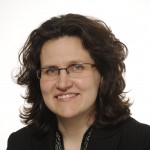Elisabeth Murray is a fellow of the Chartered Institute of Patent Attorneys, a European Patent Attorney and Partner in Mathys & Squire in central London.
As a final year undergraduate considering joining the profession, I decided to apply to the larger London firms of patent attorneys. I had believed that training and work experience would be better in such a firm compared with a small firm or one located away from London and therefore the Institute lectures and social events.
However, when I was offered a job at Abel & Imray, the opening was at their Bath office and not in their London office. As it turned out, my initial scepticism had been wrongly placed and a small branch office proved to be an excellent place to train.
Training
Key to good training is having a variety of suitable work on which to gain experience and plenty of time with qualified attorneys for critical review of the work done. In the Bath office, I was lucky to have both.
In general, I seemed to do the same type of work as my contemporaries working in bigger firms in London, but with one important exception: working in a small regional office, I was exposed to a large number of small, local clients and members of the public needing initial patent advice. As these clients passed through the office they all needed to hear the patent basics; and sitting in on these meetings I heard these basics again and again. This provided me, as a new trainee, with a very solid foundation on which to build.
Thanks to these training opportunities (as well as a large amount of independent study), I quickly passed all of the UK and European exams, even gaining a prize for obtaining the highest mark in one of the UK exams. I had become fully qualified within four years of entering the profession.
New challenges
Many newly qualified attorneys have itchy feet and it’s common for people to move firms soon after qualification. Six years working in a small branch office had been excellent for my training, but I now wanted to broaden my experience by working in a busy London firm. There were personal reasons for moving to London, but I welcomed the new environment and different challenges that moving to a new firm would provide.
Different firms have different ways of organising their staff and their work and there were new ways of working for me to become accustomed to. For example, coming from a small office, I had become used to doing all of the work relating to the patent applications I had filed. At Mathys & Squire, I had my first experience of a formalities department of paralegals carrying out many of the filing and standard prosecution steps required in obtaining a patent. Over time, I became more used to letters being sent out to my clients by people other than myself and deadlines being met on my applications without my input being required.
One of the biggest changes however, was in the balance of the type of work I was responsible for; my workload increased considerably. This was a significant change from my previous position, where I found the free time to complete my training and even complete part of a German language degree course (to help with the language requirements of the European patent examinations).
Branching out
Since qualification, I had become increasingly involved in training the next generation of patent attorneys; this was something that I found I enjoyed. In the office, I began supervising the work of newer trainees and gave tutorials reviewing past examination papers. I also gave external tutorials to trainees from other firms through the tutorials organised by the Informals (the CIPA student body).
I also enjoyed assisting at CIPA, in particular with their patent clinics. The clinics are carried out by qualified attorneys providing members of the public free basic advice on any patent, design, or trade mark issues.
There are many opportunities before and after qualification for those with an interest to broaden their work activities beyond pure patent case work. I became particularly involved with training; some colleagues became involved in the running of the Informals and CIPA committees.
Taking a break and coming back
When returning from maternity leave, I was fortunate that Mathys & Squire agreed to my working part-time and also working from home. This allowed me to return to work earlier than I might otherwise have done and also to find a good balance between my responsibilities at home and at work.
In a job so led by strict legal and client-led deadlines, organisation and flexibility (as well as a helpful IT department) are essential if the work is to be managed effectively when working part-time and at home. Nevertheless, this is a job where flexible working can be made possible: so many aspects of the work can be done away from the office, whether that be at home or on the train and at any time of the day (or night!). Using electronic filing, even new patent applications can be filed remotely.
So, looking back over 17 years in the patent attorney profession, I can see how my day-to-day job has changed. Today, I find that I have fewer of the direct training responsibilities which I had when I first moved to Mathys & Squire, but as a partner I now spend more time on activities relating to the running of the firm and its functions.
In such a small profession, there is no standard job description for a patent attorney; each attorney has the opportunity to create their own unique workload both of case work and other responsibilities according to their interests.







